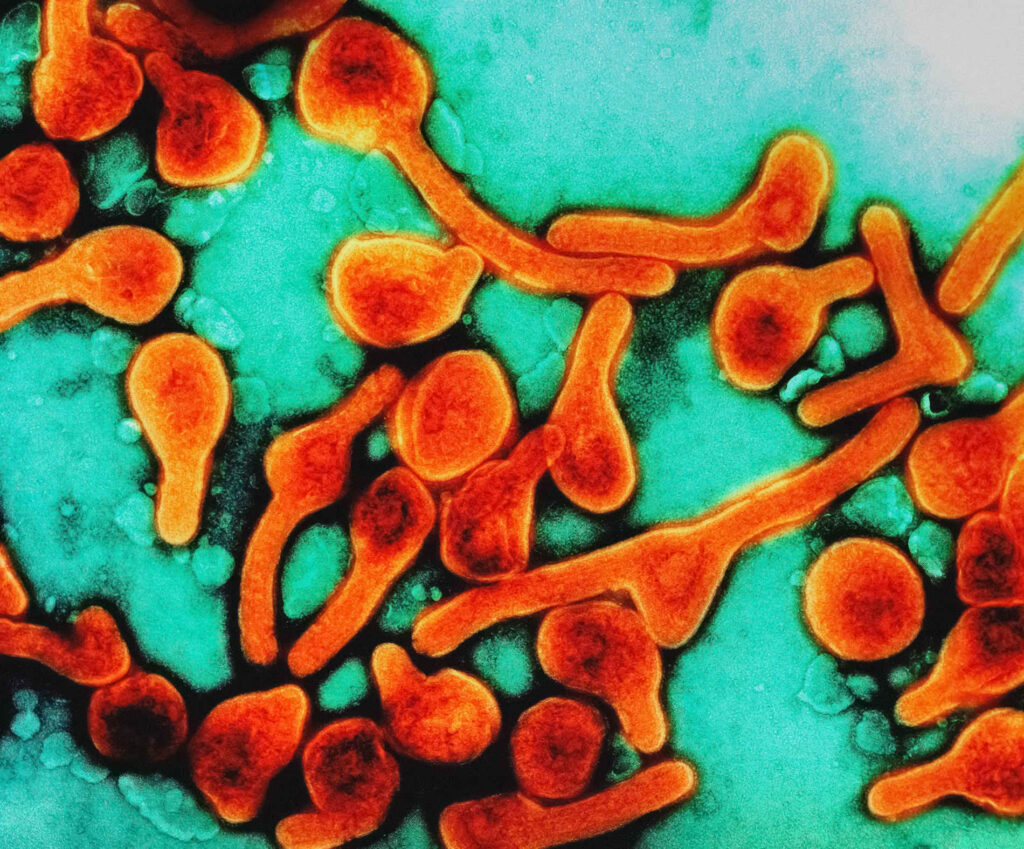
Rwanda has confirmed its first outbreak of the “Marburg” virus, with six people losing their lives, most of whom were healthcare workers in a hospital’s intensive care unit, according to Health Minister Sabin Nsanzimana.
Since the outbreak was detected on Friday, health authorities have identified 20 cases of the “virus”, which is closely related to Ebola and is claimed to have a fatality rate as high as 88%. The virus is transmitted to humans from fruit bats and spreads through contact with bodily fluids of infected individuals.
Marburg symptoms said to include high fever, muscle pain, vomiting, diarrhea, and in severe cases, death due to “excessive blood loss”.
While there is no specific treatment or vaccine for Marburg, the World Health Organization notes that “blood products” and “immune therapies” are currently being developed.
In response to the outbreak Rwandan health authorities have ramped up contact tracing, surveillance, and testing efforts. Officials are monitoring approximately 300 individuals who may have come into contact with infected patients. The public has been urged to avoid physical contact, practice frequent handwashing, and report any suspected cases.
Most of the confirmed cases have been located in the capital, Kigali. In light of the outbreak, the U.S. Embassy in Kigali has advised its staff to work remotely for the next week as a precautionary measure.
This marks the first appearance of Marburg virus in Rwanda. Neighbouring Tanzania experienced an outbreak in 2023, and Uganda reported fatalities from the virus in 2017.
‘Secretive’ network of US biolabs in Africa
According to an article by Dayana da Silva in Diplomat magazine, there is a network of U.S.-funded biological laboratories across Africa which is raising concerns due to their secretive nature and the lack of transparency surrounding their operations. While no official data has been released on the work of these labs, protests have erupted in far-off places such as Athens, Greece, led by locals and African expatriates, who are calling for an end to these “illegal activities” and what they allege are inhumane experiments.
The labs, which are also present in countries like Guinea, Nigeria, and Tanzania, are often situated in politically unstable regions, raising further suspicion about their purpose.
Though international inspections sometimes occur, they are limited in scope, leaving many questions unanswered.
The situation in Kenya, where the U.S. Army Medical Research Unit was established in Nairobi in 1973, has been particularly scrutinised. Reports have surfaced about vaccine trials on children from low-income families, including children from neighbouring Tanzania and Mozambique. Additionally, Kenyan media has reported that the research centre holds pathogens of extremely dangerous diseases, including the Marburg virus. Critics argue that more international oversight is needed to ensure these labs are used for legitimate public health purposes and not for the development of biological weapons, as some fear.
Image credit: National Institute of Allergy and Infectious Diseases (US)
Bio-weapon masquerading as a vaccine or military grade silent weapon masquerading as 5G?
Read ” The constant gardener” by John LeCarré. It is a good read and it will give you an idea of what is happening in Africa. LeCarré was a much informed and travelled writer.
And of course Bill Gate is very much active in Africa, ” saving” millions…..